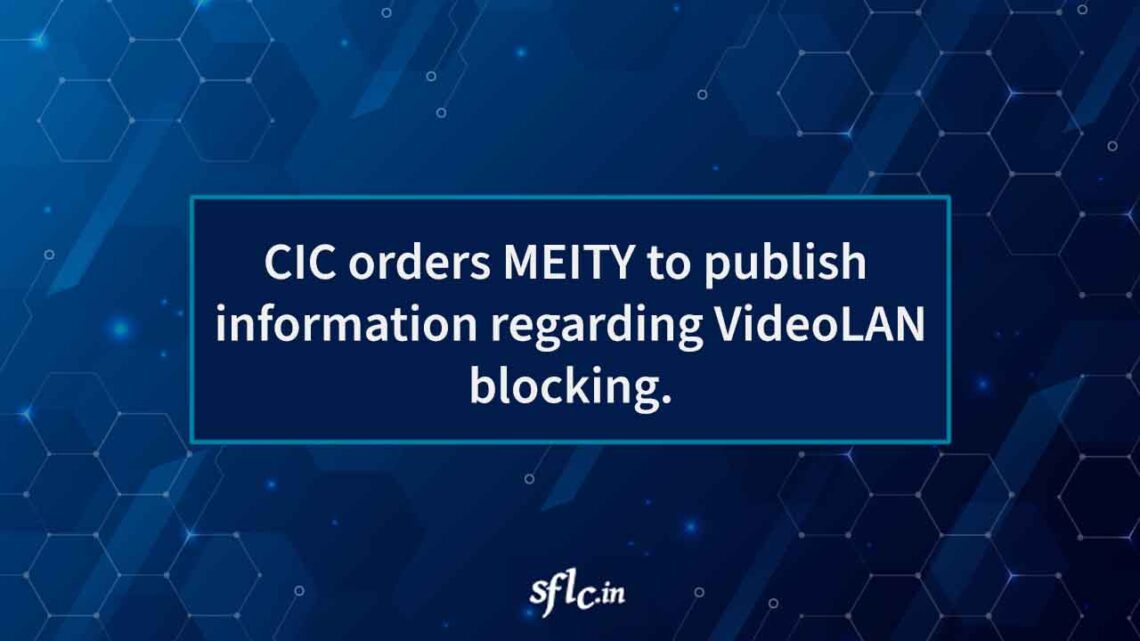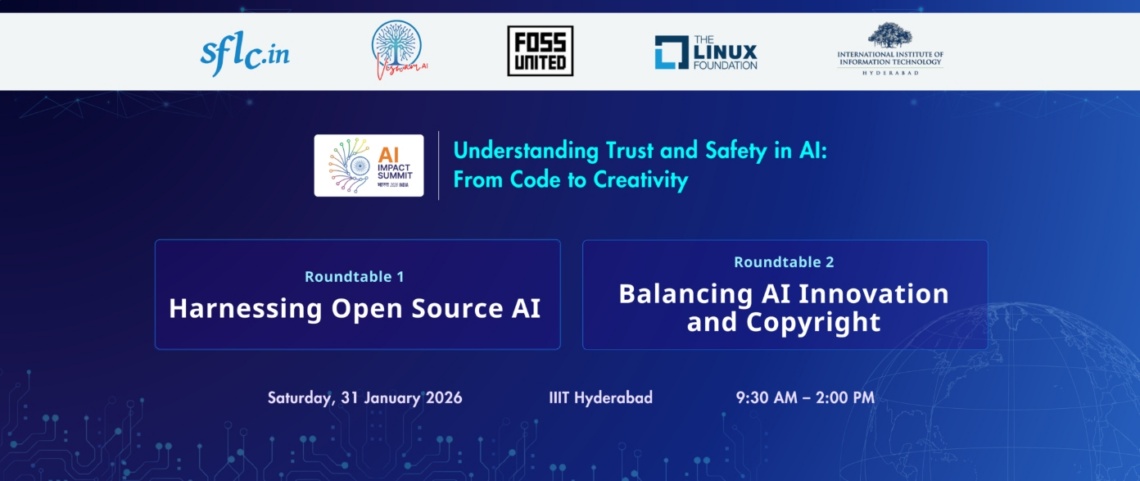SFLC.in regularly files applications under the Right to Information Act, 2005 (“RTI Act”) with respect to blocking of websites and content take down. Pursuant to the research for the Finding 404 Report and maintaining the Free Speech Tracker, multiple applications were filed in 2022. Many a times the information sought in the applications is declined due to blanket use of Rule 16 of the IT (Procedure and safeguards for blocking for access of information by public) Rules, 2009 (“IT Rules, 2009”) and Section 8(1)(a) of the RTI Act. Accordingly, these replies are appealed before the First Appellate Authority (“FAA”) and eventually a Second Appeal is filed before the Central Information Commission (“CIC”) in case the orders are unsatisfactory or do not disclose application of mind.
On 23 February 2023, SFLC.in appeared before the CIC in three hearings regarding applications pertaining to blocking 54 mobile applications and certain URLs. These appeals were clubbed together for being related to similar issues and raised on similar grounds. The details of the applications and the subsequent proceedings are the subject of this post.
Details of the Applications
- The application [DITEC/R/E/22/00174] was filed on 15 February 2022 to seek information regarding blocking of 54 mobile applications by MEITY. The application sought the following information:
- The name of applications that were blocked.
- Order/ orders issued under which these applications were blocked.
- Another application [DITEC/R/T/22/00266] was filed on 1 June 2022 with MEITY. SFLC.in often uses network measurement tools, like OONI in order to gauge the extent of internet censorship. In doing so, a list of blocked URLs was prepared. The RTI application filed contained such list of URLs. The CPIO was asked to state whether those URLs were blocked and to provide the orders issued to block these URLs.
- The third application [DITEC/R/E/22/00555], filed on 2 June 2022, sought information with respect to blocking of “videolan.org”.
The applications received similar responses. The CPIO denied the provision of any information regarding blocking of the mobile applications and URLs., based on the following ground(s):
- Rule 16 of the Information Technology (Procedure and Safeguards for blocking for access of Information by Public) Rules, 2009 requires strict confidentiality to be maintained with respect to blocking of content on internet under section 69A of the Information Technology Act, 2000. The information sought in the application fell under Rule 16, therefore, the information could not be provided by the CPIO.
- Additionally, the information related to blocking of mobile applications and URLs is related to security of State and providing the information would be prejudicial to the same. Therefore, the CPIO is exempted to provide any information under Section 8(1)(a) of the RTI Act.
- However, in case of “videolan.org” application the CPIO stated that- MEITY does not have any information with respect to blocking of “videolan.org”.
First Appeals
Thus, first appeals were filed with the FAA on the ground that denial of information by a blanket use of Rule 16 is erroneous. In Shreya Singhal v Union of India [(2013) 12 SCC 73] the constitutional validity of Section 69A was upheld for the reason that a website blocking order has to be published so that it can be challenged under Article 226 of the Constitution. Therefore, Rule 16 must be read narrowly and information related to the name of the applications and the status of blocking specific URLs must necessarily be provided.
However, the orders provided by the FAA stated that CPIO’s response holds true. The orders failed to deal with the grounds raised in the First Appeal and provide reasons. Therefore, Second Appeals were filed challenging the said orders of the FAA.
Second Appeal and CIC Hearings
The second appeal was raised on the following grounds:
- The FAA failed to provide reasoning in the order for upholding CPIO’s response. The FAA is bound to act in a fair and just manner and must provide reasons. The order that was issued failed to reflect any application of mind by the FAA.
- The second ground was based on the same grounds raised in the First Appeal.
On 23 February 2023, a hearing for all three applications was conducted. During the hearing, it was brought to the CIC’s attention that a blanket use of Rule 16 and Section 8(1)(a) is an erroneous application of law. It was further pointed out that in Shreya Singhal v Union of India, the court upheld the constitutional validity of section 69A of the Information Technology Act, 2000 and the IT Rules, 2009 based on the reasoning that the orders thereunder can be challenged under Article 226 [para 114]. Therefore, blanket use of Rule 16 to deny information is improper exercise of administrative power. It was also stated by the CPIO that the URL for VLC website, i.e., “videolan.org” is not found in their database.
Observations of the CIC
The Presiding Officer observed that the information which is already publicly available must be made available by the CPIO. Blanket exemptions cannot be claimed under Section 8(1)(a) of the RTI Act, noting that there have been instances where detailed information has been provided in the past (citation reference number). Moreover, the Presiding Officer directed the CPIO to state that “videolan.org” URL is not available in the database maintained by MEITY. The Presiding Officer observed that the orders passed by the MEITY cannot be made available in the interest of security of State.
Therefore, it was decided that the CPIO will provide the following information:
i. The name of 54 applications which were blocked.
ii. Whether or not the URLs mentioned in the list are blocked by MEITY or not.
More Transparency in Content Take Down
The order sets a valuable precedent with respect to enhancing transparency in India’s content take down regime. The existing procedure of content take down prescribed under Section 69A and IT Rules, 2009 suffers from multiple shortcomings which render the process opaque. SLFC.in’s report on Website Blocking in India highlights the pitfalls in the current framework and recommends changes which will ensure transparency and accountability. This order will go a long way in this uphill battle of protection free speech on Internet.
The order issued by the CIC is available below:




